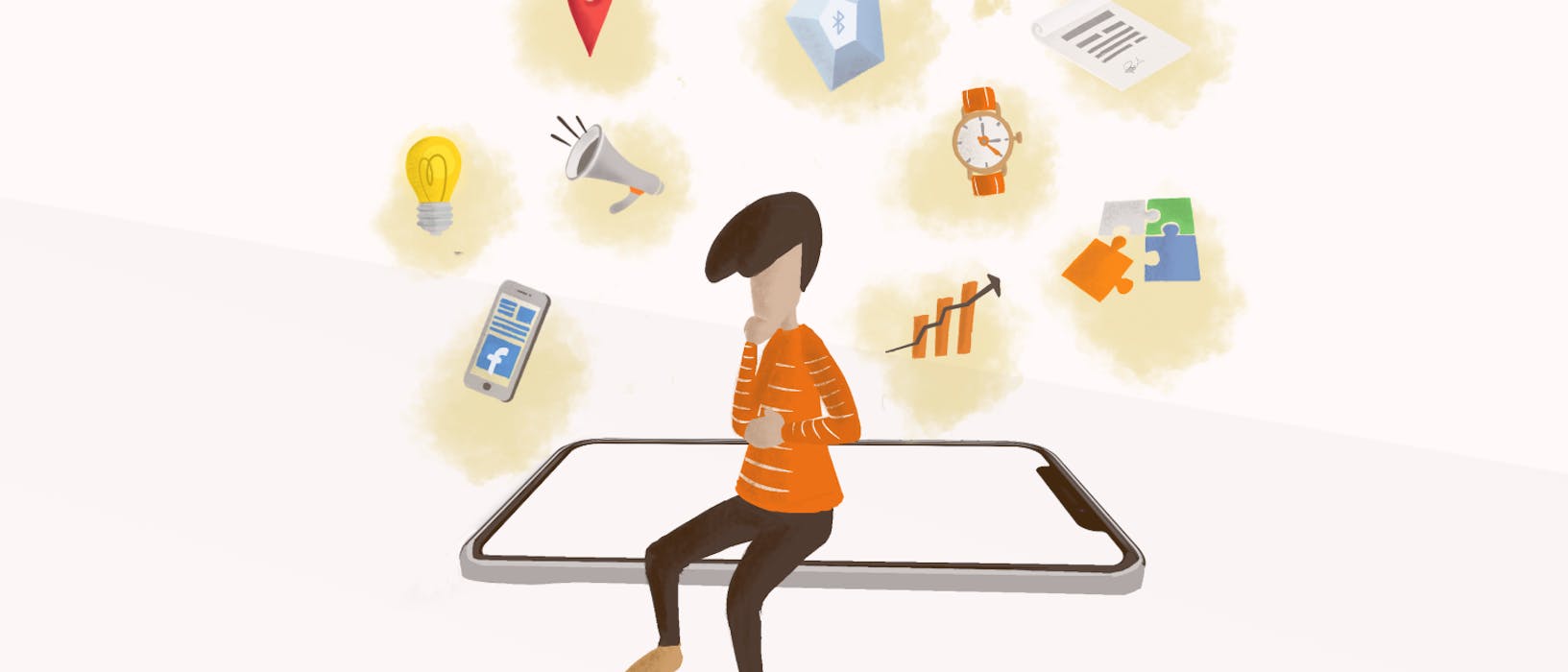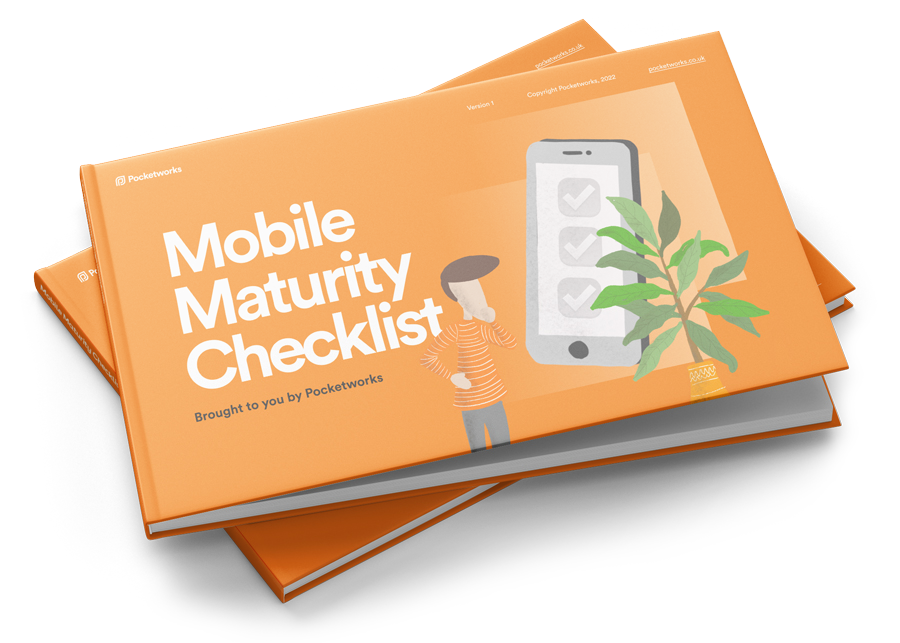If you've figured out a promising strategy for your mobile app, the next step is to design features that enable you to execute that strategy well.
Mobile apps are different to websites because they offer more options to enhance the customer experience, from Geolocation and Video to Motion Sensors, LIDAR and Augmented Reality. Let's explore a few angles that may help you and your team spark some new ideas.
1. Location: How might we use the phones' location to save people time or effort?
Your app can know when a customer enters a shop, a car park or a city. A business can define any of these boundaries it wants, so the possibilities are pretty broad.
But what do you do with this information?
You might send a customer a reminder when they are near a store or premises. Or you might allow customers to earn points for coming to your store. You could even use machine learning to predict when they might visit next.
You can also use geolocation to show customers a list or map of things nearest them. A delivery app might do this to show the nearby restaurants at the top of the list.
Taking this further, you can detect if a customer is approaching or leaving a location, which could be useful when tracking the status of a driver or when choosing which message to send a customer.
2. Push: When interacting with our business, when do customers feel unsure as to what is going on? Is there an opportunity to better keep them in the loop with push messages?
Push messages are perfect for delivering timely and relevant information. You can also use them as part of re-engagement campaigns to bring people back to your app. A good time for this can also be when there are gaps in the customer journey, such as when waiting for an order to arrive or after entering the airport gate.
3. Referral: Is there anything our customers naturally like to share with others after experiencing our products or services? What would they organically be proud to share from within the app?
Some businesses design their apps as organic growth engines. This means identifying reasons why customers might share organically. You can incentivise with vouchers, but you can also make the most of more natural opportunities for customers to spread the word about your product. Instagram is very good at this because people naturally want to share the content they create, which in turn tells more people about the platform.
4. Proximity: Where do our customers interact with our business physically? Might we consider beacons, wallets or proximity to enhance our customer experience?
Beacons allow you to recognise when customers come close to your premises, or even a single area or room. You can also give Wallet items a location, so they automatically show when a customer is near your premises. For example, a cafe loyalty card might automatically remind the user about the cafe when they are nearby.
5. Scanning: Do customers ever have to spend time filling out forms or giving us information? Is there an opportunity to speed that up using QR codes, image recognition or predictive text?
Phones are getting better at scanning text, images and QR codes to auto-fill data. Similarly, you can use databases to suggest what to type, saving the customers time.
6. Watch: Is there any information that customers might need to keep a close eye on each day that could be put permanently on their Apple watch face?
You can create watch "complications" that Apple Watch users can show permanently on their watch face. For example, if you are an airline company, you could show the cheapest ticket price to your frequent flyers to help retain them and generate loyalty.
7. Integration: Are there any other partners or apps that we can share data with, which would add value to our own offering?
An exercise app might share data with Health Kit so other apps can read in calories burned. A hotel booking app might include the pickup time for taxis, so guests can easily book themselves a taxi. All this is added value by simply sharing or consuming data from others.
8. Analogy: If our app were simply a Facebook feed, how would it work?
Trying to build your app in the style of another app is a good way to come up with new ideas. Most apps can be done as a "feed", and trying this as a design exercise can be fun. Feeds are interesting because they only require users to scroll, making them very simple. It won't always work, but it will get thinking. You can try any other analogy too, such as "What if our app was like..." - Instagram, AirBnb, eBay, Uber etc.
9. Artificial Intelligence: Do customer segments exist that we don't know about? Could we utilise predictive technologies to learn about these segments and automatically make recommendations to our customers?
Recommendation engines can analyse user behaviour and then start to recognise clusters of users you might not know about. They can then use this information to suggest items to look at or buy next. This is how Amazon tell you other things you might consider buying, or what items to recommend to you on their home page.
10. Frequency: What can we encourage users to do every day, month or week?
An app is often a good idea when it helps customers achieve something daily or weekly. Are there any parts of your customer journey that involve doing things frequently? Even if not, you could ask customers about their experience with your business and see if you missed an opportunity to re-engage them.

